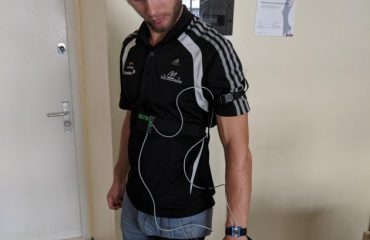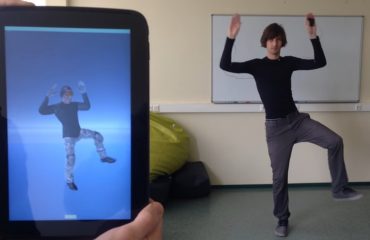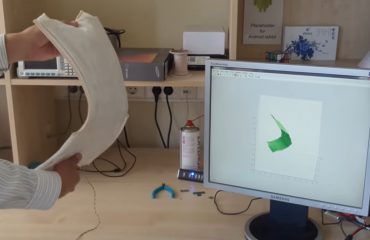EDI wearable sensor group is working on wearable sensor system development with potential applications in medicine, sport, and daily activities. Mainly it involves inertial sensors, but the group also has experience with biosensors (ECG, EMG and EEG). The group has developed an energy-efficient wired communication solution that can provide data acquisition from a few hundred sensor nodes. This communication solution is further developed outside the wearables area in engineering structures (bridges, buildings) deformation monitoring.
Main challenges in this area are:
- energy-efficient sensor development in terms of data acquisition and sampling;
- sensor data processing with constrained processing resources;
- extraction of useful information from sensor data;
- ease of use.
Developed solutions can help people to improve quality of life, by obtaining information about their body and daily activities, allowing them to create and follow a more balanced regime. In sports these solutions can help the training process, making it more efficient and accurate. In medicine these solutions can help in rehabilitation by providing feedback about how well the exercises are performed and by allowing rehabilitation exercises without supervision of a medical specialist.
EDI has developed unique energy-efficient sensor communication solution that allows data acquisition from a large number of sensor nodes with minimal number of wired connections. This solution is the main building block for sensor systems developed at EDI with applications in medicine, sport, and daily activities. EDI has developed unique 3D surface reconstruction algorithms, that allows surface reconstruction in constrained computational resources.
Competencies we provide:
- sensor system development;
- inertial sensors;
- low power sensor system development;
- PCB design;
- Flexible PCB design;
- digital communication interfaces;
- Bluetooth and Bluetooth Low Energy communication in the application level;
- inertial signal processing;
- bio-electric signal processing;
- machine-learning algorithms;
- 3D visualization;
- simulations;
- software development for smart devices (Android OS smartphones, tablets) in wearable sensor context.
Projects
Recent publications
-
Atis Hermanis, Krisjanis Nesenbergs, "Grid shaped accelerometer network for surface shape recognition", Electronics Conference (BEC), 2012 13th Biennial Baltic, pp.203-206, 2012.
DOI: 10.1109/BEC.2012.6376852
-
A. Hermanis, K. Nesenbergs, R. Cacurs, and M. Greitans, "Wearable Posture Monitoring System with Biofeedback via Smartphone", Journal of Medical and Bioengineering, (ISSN: 2301-3796), March 2013, Vol. 2, no. 1, pp.40-44, 2013
-
A. Hermanis, R. Cacurs, K. Nesenbergs un M. Greitans. "Efficient Real-Time Data Acquisition of Wired Sensor Network with Line Topology", 2013 IEEE Conference on Open Systems, 2-4 dec., 6lpp. doi: 10.1109/ICOS.2013.6735062
-
HERMANIS, A., CACURS, R. and GREITANS, M., 2016. Acceleration and Magnetic Sensor Network for Shape Sensing. IEEE Sensors Journal, 16(5), pp. 1271-1280.
-
HERMANIS, A., CACURS, R., GREITANS, M., 2015. Shape sensing based on acceleration and magnetic sensor system, 2015 IEEE International Symposium on Inertial Sensors and Systems (ISISS), 23-26
-
Bluetooth Low Energy Throughput in Densely Deployed Radio Environment
-
A. Ancans, A. Rozentals, K. Nesenbergs, M. Greitans. “Inertial sensors and muscle electrical signals in human-computer interaction”, 6th International Conference on Information and Communication Technology and Accessibility ICTA 2017
-
NESENBERGS, K., SELAVO, L., 2015. Smart textiles for wearable sensor networks: Review and early lessons. In Medical Measurements and Applications (MeMeA), 2015 IEEE International Symposium on (pp. 402-406).
-
NESENBERGS K. 2016 “Architecture of smart clothing for standardized wearable sensor systems.” IEEE Instrumentation & Measurement Magazine Volume 19, Issue 5 (2016), pp. 36-64. DOI:
10.1109/MIM.2016.7579068 , http://ieeexplore.ieee.org/document/7579068/
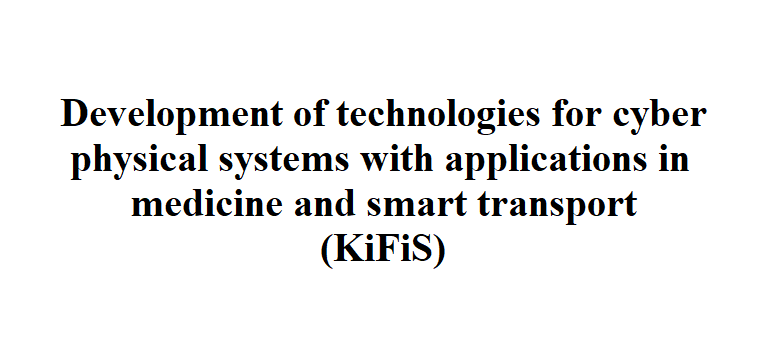 Development of technologies for cyber physical systems with applications in medicine and smart transport (KiFiS) #SRP (VPP)
Development of technologies for cyber physical systems with applications in medicine and smart transport (KiFiS) #SRP (VPP)
Frictionless Energy Efficient Convergent Wearables For Healthcare and Lifestyle Applications (CONVERGENCE) #Chist-era / Flag-era
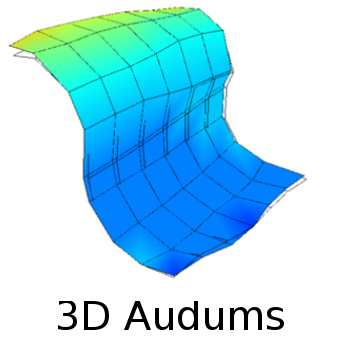 3D shape sensing fabric (3D FABRIC) #ESIF
3D shape sensing fabric (3D FABRIC) #ESIF
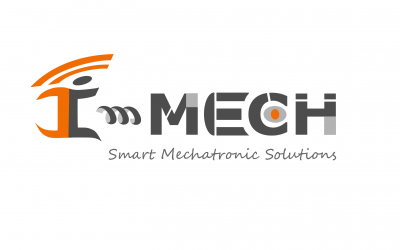 Intelligent Motion Control Platform for Smart Mechatronic Systems (I-MECH) #H2020
Intelligent Motion Control Platform for Smart Mechatronic Systems (I-MECH) #H2020
